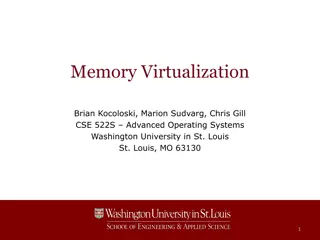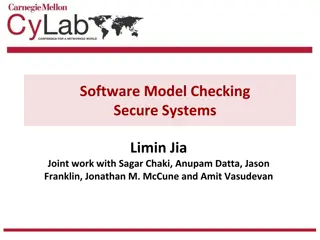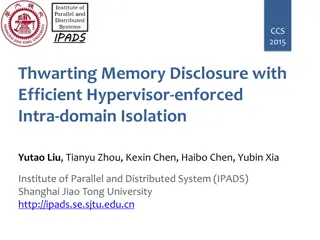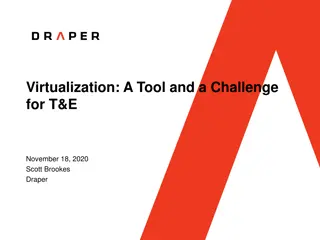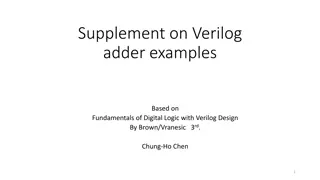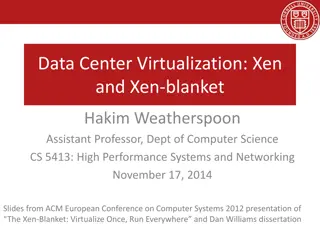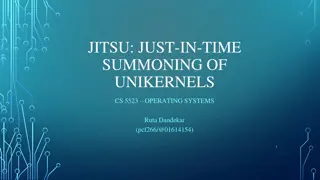Understanding Memory Virtualization in Operating Systems
Memory virtualization in operating systems involves mapping guest addresses to host addresses with an added level of indirection managed by the hypervisor. Virtualization extensions in x86 processors enhance efficiency by allowing safe execution of guest code in Ring 0 through supervisor mode. The a
1 views • 28 slides
Carnegie Mellon Secure Systems Verification Research
Carnegie Mellon University's research focuses on secure hypervisor systems, address space separation, and verification tasks to ensure security properties in the presence of adversaries. Challenges include scalability in model checking due to complex data structures in address translation. The aim i
3 views • 20 slides
Enhancing Security with Efficient Intra-App Compartmentalization
Thwart memory disclosure attacks using SeCage, a hypervisor-enforced intra-app compartment solution. Achieve strong isolation to prevent secret data exposure across large attack surfaces. Implement practical and efficient measures to protect against vulnerabilities like Heartbleed and rootkits with
0 views • 38 slides
Understanding Virtualization: Hardware Abstraction and Hypervisor Concepts
Dive into the world of virtualization with a focus on hardware abstraction and hypervisor technology. Explore the definitions and examples of hardware virtualization, hypervisors, and hardware abstraction, shedding light on how they enable multiple operating systems to coexist on a single physical m
0 views • 21 slides
Verilog Adder Examples & Typical IC Design Flow
This comprehensive content delves into Verilog adder examples, typical IC design flow, physical design considerations, and examples of OpenGL ES GPU and ARM hypervisor applications. It covers the fundamentals of digital logic with Verilog design, hardware description language, FPGA prototyping, phys
0 views • 27 slides
Xen-Blanket: Virtualize Once, Run Everywhere
The Xen-Blanket, introduced by Hakim Weatherspoon, aims to address challenges in cloud computing such as lack of interoperability and efficient resource utilization. It enables uniform VM images, advanced hypervisor management, and seamless migration between clouds. The second-layer hypervisor enhan
0 views • 28 slides
Enhancing Network Performance with JITSU and Unikernels
Explore how Just-In-Time Summoning of Unikernels (JITSU) can mitigate network latency issues in cloud hosting environments. Unikernels are lightweight, isolated virtual machines that boot quickly to respond to network traffic, providing real-time services. Leveraging the Xen hypervisor and MirageOS
0 views • 22 slides
